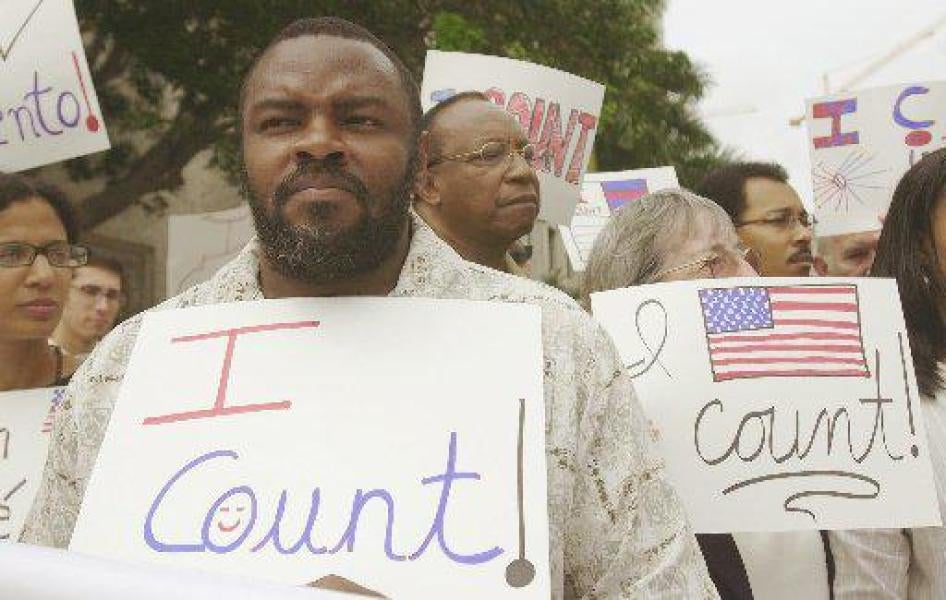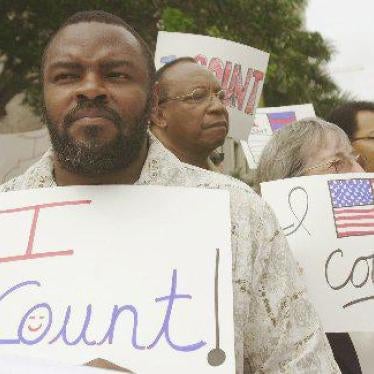[i] The Justice Roundtable is a coalition of over 100 organizations working on federal criminal justice reform policy issues.
|
Letter
Coalition Supports the Democracy Restoration Act Provision of H.R. 1
The Honorable Jerrold Nadler
Committee on the Judiciary
United States House of Representatives
Washington, DC 20515
The Honorable Doug Collins
Committee on the Judiciary
United States House of Representatives
Washington, DC 20515
January 29, 2019
RE: Broad coalition supports the Democracy Restoration Act provision of H.R. 1
Dear Chairman Nadler and Ranking Member Collins:
As the House Judiciary Committee prepares to hear testimony regarding H.R. 1, the For the People Act of 2019, the Justice Roundtable[i] and its associated organizations write in support of the bill’s provision – known as the Democracy Restoration Act - to extend federal voting rights to people with felony convictions.
When people leave prison and return to their community, they deserve a second chance to work, raise families, participate in community life and vote. The current patchwork of felony disenfranchisement laws across the country means that a person's right to vote in federal elections is determined simply by where they choose to call home. Congress must take action to fix this problem.
While disenfranchisement policies have been in place for many years, the number of persons subject to these laws has increased dramatically with the expansion of the criminal justice system over the last 40 years. Racial disparities in the criminal justice system translate into higher rates of disenfranchisement in communities of color. Thirty-four states disenfranchise people who are not incarcerated and are living in their communities either under supervision or have completed a felony sentence. The Democracy Restoration Act would restore federal voting eligibility to these citizens.
Recent bipartisan state efforts to scale back the impact of felony disenfranchisement are noteworthy. Florida voters in November passed a ballot initiative that reformed the state’s century-old lifetime ban on voting for people with convictions, and in doing so restored the right to vote for approximately 1.4 million people. In March, approximately 43,000 Louisianans will have their voting rights restored, including some people on probation and parole, as a result of new legislation. Since 1997, 23 states have amended felony disenfranchisement policies in an effort to reduce their restrictiveness and expand voter eligibility.
People living in the community under probation or parole supervision or after completing their sentence take on the same responsibilities as other citizens living in their communities. The second chance they are afforded by release should extend to the ballot box.
A growing chorus of law enforcement officials and organizations, including police chiefs, corrections officials, and prosecutors, have called for the restoration of voting rights for people released from prison and convicted of felony offenses because it aids efforts for successful reintegration.
As the Committee reviews H.R. 1 and considers means to improve the country’s electoral system, we urge you to prioritize passage of the Democracy Restoration Act. We look forward to working with you to advance this important legislation.
For questions, please contact Kara Gotsch at kgotsch@sentencingproject.org or 202-628-0871.
Sincerely,
American Friends Service Committee
American King Foundation
Beauty after the Bars
Braxton Institute
Bread for the World
Brennan Center for Justice
CAN-DO Foundation
College & Community Fellowship
The Daniel Initiative
Defending Rights & Dissent
Drug Policy Alliance
Healing Communities USA
Human Rights Watch
Innocence Project
Interfaith Action for Human Rights
International CURE (Citizens United for Rehabilitation of Errants)
Justice Innovations
Justice Programs Office, American University
Justice Strategies
JustLeadership USA
Kemba Smith Foundation
Leadership Conference for Civil and Human Rights
Legal Action Center
Life for Pot
Mennonite Central Committee U.S. Washington Office
Mommieactivist and Sons
NAACP
National Association of Criminal Defense Lawyers
National Association of Social Workers
National Black Justice Coalition
National Center for Lesbian Rights
National Council of Churches
National HIRE Network
Ohio Justice and Policy Center
Planned Parenthood Federation of America
Rich Family Ministries
Safer Foundation
The Sentencing Project
StoptheDrugWar.org
Students for Sensible Drug Policy
The Taifa Group, LLC
Treatment Communities of America
T'ruah: The Rabbinic Call for Human Rights
Union for Reform Judaism
Your tax deductible gift can help stop human rights violations and save lives around the world.
Region / Country
Most Viewed
-
November 25, 2019
A Dirty Investment

-
June 3, 2025
“They’re Ruining People’s Lives”

-
December 21, 2023
Meta’s Broken Promises

-
January 25, 2024
“We’re Dying Here”

-
February 19, 2018
“All We Want is Equality”





